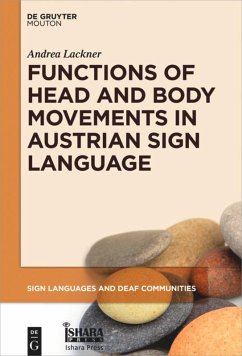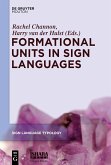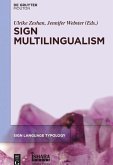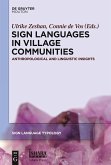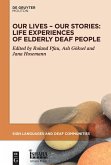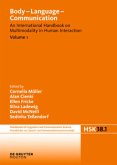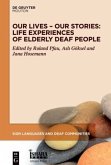Research on nonmanual elements - or 'nonmanuals' - in sign languages has focused on both the possible functions and the occurrence (frequency and form) of these elements in recent years. As a matter of fact, research on nonmanuals is still a quite uncharted territory in Austrian Sign Language (ÖGS) today, which has also initiated the study given.
In order to identify head and body movements in ÖGS, these nonmanuals were determined and analyzed functionally via a new user-oriented methodology. Getting feedback of multiple native signers was a main part of this method. Accordingly, you will find the findings of this study in this volume: various functions such as negation, assertion, interrogativity, conditionality, and many more can be expressed nonmanually. Brand new insights into sign language research are given, as well as astonishing results: even (epistemic) modality can be expressed by particular head and body movements.
In order to identify head and body movements in ÖGS, these nonmanuals were determined and analyzed functionally via a new user-oriented methodology. Getting feedback of multiple native signers was a main part of this method. Accordingly, you will find the findings of this study in this volume: various functions such as negation, assertion, interrogativity, conditionality, and many more can be expressed nonmanually. Brand new insights into sign language research are given, as well as astonishing results: even (epistemic) modality can be expressed by particular head and body movements.
"This book will be of interest to any sign language, corpus linguistics, or gesture researcher for its comprehensive overview of non-manuals, its novel methodology, and its insights into the nuances of the grammatical function of head and body movements in communication." Benjamin Anible in: Sign Language & Linguistics 22:2, 2019, 298-302

